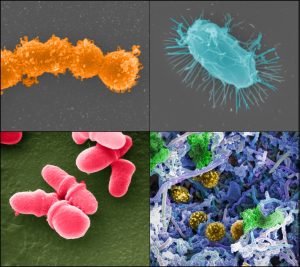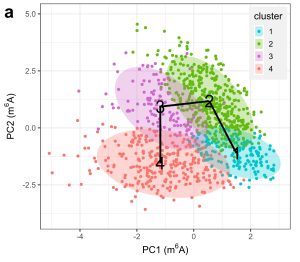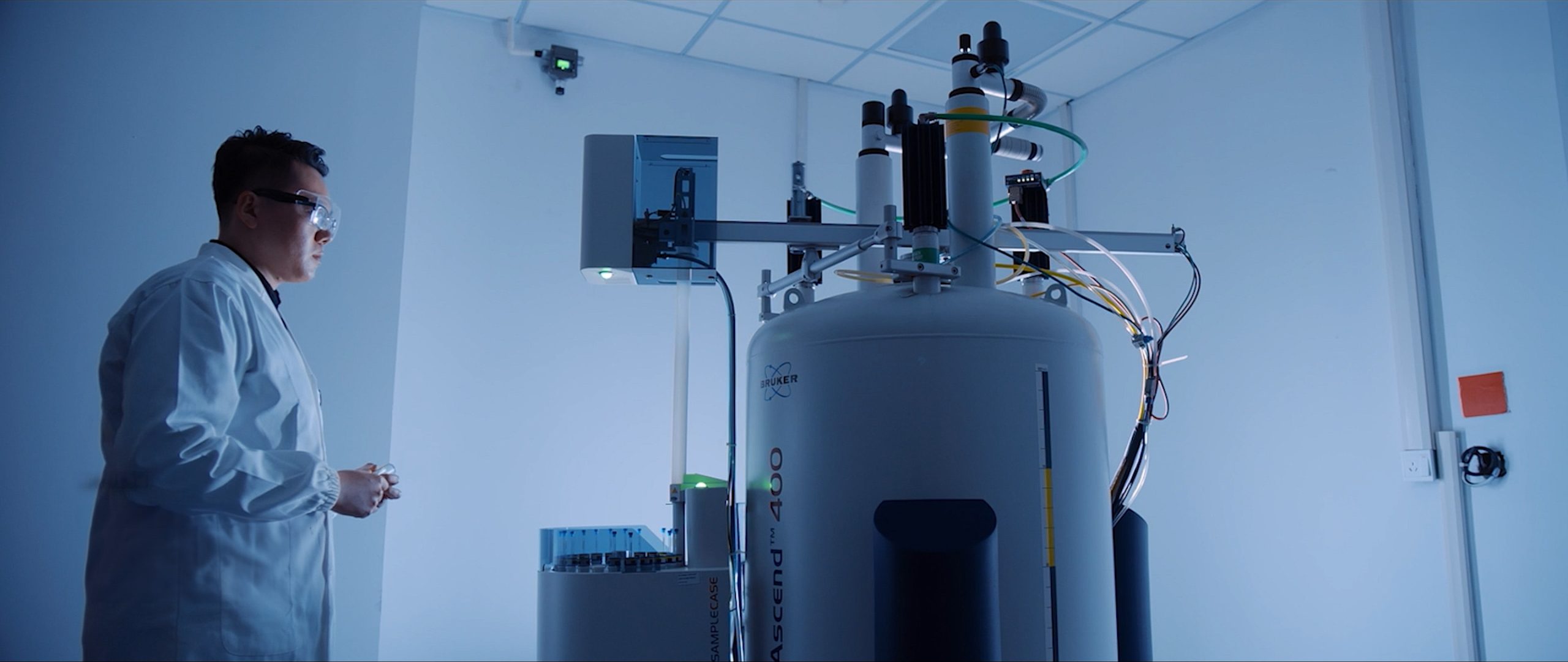Suzhou Municipal Key Lab for Metabolic Syndrome Drug Research
Director: Dr Weiwei Dai
Metabolic syndrome (MetS) is a bunch of metabolic defects comprising hypertension, insulin resistance, visceral obesity, fatty liver, atherogenic cardiovascular diseases, and cancer. MetS involves having at least 3 out of 5 health conditions that increase the risk of cardiovascular disease, stroke, Type 2 diabetes, and cancer. Suzhou Municipal Key Lab for Metabolic Syndrome Drug Research (hereafter “Metabolic Key Lab”) in the School of Science at XJTLU is dedicated to exploring the molecular mechanism of metabolic diseases, systems and structural biology, protein and bioengineering, cell communication, and new medicine development. Metabolic Key Lab encourages industry-university-research cooperation and cross-faculty cooperation. The Lab also contributes to scientific research instruments, and supports disciplinary research in corresponding fields.
Metabolic Key Lab in the School of Science at XJTLU will mainly focus on studying the following key research areas:
- Molecular mechanism of diseases including
- Cancer metabolism
- Microbiology
- Bioinformatics and computational biology
Metabolic key lab will also enhance the industry-university-research cooperation and cross-faculty cooperations, as well as seek for in-depth collaborations with Biopharmaceutical companies in Biobay and Biomedical industry including local hospitals to further facilitate our basic research and scientific research & technology transfer in the School of Science at XJTLU.
“As the newly appointed Lab Director, my role is to ensure the consistent high research productivity and quality yield from the Metabolic Key Lab, secure sufficient and consistent research funding especially external governmental fundings and industry fundings, train more talent BSc, MRes, PhD students and Postdocs, organize/host high level of serial research seminars and metabolic conferences, as well as help attract more oversea talents to join Metabolic Key Lab in the School of Science at XJTLU to maintain our sustained world class research outcomes. Honestly, I feel pressured about the responsibilities I am undertaken, honored about the strong support and trust from School of Science, and more excited about the enormous opportunities to explore. I firmly believe that we are a fast-developing Key Lab, and we will keep growing in the years to come. I sincerely hope and humbly invite more talent BSc, MRes, PhD students and Postdocs to join the Metabolic Key Lab in time!” – said the Lab Director, Dr. Weiwei Dai.
Suzhou Municipal Key Lab of Biomedical Sciences & Translational Immunology
Director: Professor Eyad Elkord
Research in biomedical sciences is critical for advancing medical knowledge, developing innovative technologies, discovering new treatments, facilitating translational medicine, promoting precision medicine, and addressing public health needs. One of the main focuses of this research lab is Translational Immunology. Immunology research is crucial for advancing our understanding of the immune system and its impact on human health and disease. It leads to the development of effective treatments, preventive measures, and public health strategies, ultimately improving patient outcomes and contributing to overall public well-being.
This lab will conduct a wide range of activities aimed at advancing our understanding of human health and diseases at cellular and molecular levels, with a focus on translating basic research findings into clinical applications. The aim is to uncover the underlying mechanisms of diseases and develop innovative strategies for diagnosis, treatment, and prevention. This lab aims to bridge the gap between basic research and clinical practice, and translating scientific discoveries into tangible medical interventions, such as new therapies, diagnostic tools, and preventive measures. Furthermore, we aim to train the next generation of aspiring researchers, providing opportunities for hands-on learning, mentorship, and the development of critical thinking and technical skills in the field of biomedical sciences and immunology.
“My role as the director of this lab is to provide strategic vision and leadership to drive the direction, goals, and growth of this research lab. This includes setting research priorities, developing long-term research strategies, and ensuring alignment with the broader objectives of the institution or organization. Additionally, to oversee the design, execution, and management of research projects within the lab, ensuring that they align with the lab’s research focus and objectives. We are excited and very positive regarding this strategic establishment of Suzhou Key Labs, which have the potential to significantly advance scientific knowledge, address unmet medical needs, train future researchers, foster collaborative opportunities, and contribute to improved public health outcomes. – said the Lab Director, Prof. Eyad Elkord.
AI4Health Suzhou Key Laboratory
Director: Professor John Moraros
The establishment of the AI4Health Suzhou Key Laboratory in the School of Science (SCI), at Xi’an Jiaotong-Liverpool University (XJTLU) in 2024 is a significant milestone that highlights the growing importance of AI in the realm of healthcare. This state-of-the-art facility and the highly qualified researchers and students working in it represents a commitment to leveraging cutting-edge technology to drive advancements in medical research, clinical practice, and public health initiatives. By focusing on AI for health, the lab aims to harness the power of artificial intelligence to enhance an interdisciplinary approach to disease prevention, diagnosis, and treatment, ultimately improving patient outcomes and contributing to the global effort to achieve the United Nations – Sustainable Development Goals related to health and well-being.
The AI4Health Suzhou Key Laboratory is poised to serve as a hub for interdisciplinary collaboration, bringing together experts in AI, medicine, public health, and related fields to explore innovative solutions to complex healthcare challenges. Through its highly competent research team and key initiatives, the lab seeks to pioneer new approaches to personalized medicine, predictive analytics, and healthcare delivery, with the overarching goal of making healthcare systems more efficient, accessible, and responsive to the needs of diverse populations in China and the world. Furthermore, the lab’s emphasis on AI for health aligns with the broader industry trends and international efforts to integrate advanced technologies into healthcare, positioning it as a leader in the ongoing transformation of the healthcare landscape.
The establishment of AI4Health Suzhou Key Laboratory underscores the commitment of SCI and XJTLU to be at the forefront of technological innovation and its application to address pressing societal needs. By investing in the development of AI capabilities specifically tailored to the healthcare domain, XJTLU demonstrates its dedication to fostering a culture of research excellence, knowledge dissemination, and practical impact in the field of health sciences and population health. As the AI4Health Suzhou Key Laboratory begins its journey, it is poised to make significant contributions to the advancement of AI-driven healthcare solutions, shaping the future of medical practice and public health on a global scale.
Professor John Moraros, Dean of the School of Science and Director of the AI4Health Suzhou Key Laboratory stated: “I am committed to providing strategic vision and leadership to steer the direction, objectives, and expansion of this esteemed research facility. This encompasses establishing research priorities, formulating long-term research strategies, and guaranteeing alignment with the overarching goals of SCI and XJTLU. I have the good fortune to be surrounded by a talented team of strong, experienced and highly accomplished scholars, who are serving as my Research Theme Leaders including our esteemed Dr. Faez Khan, Dr. Zhen Wei, Dr. Justin Fendos and Dr. Shuihua Wang. Together we will build a highly productive investigative community of scientists (faculty, students and partners) dedicated to supervising the design, implementation, and administration of AI related research initiatives that will benefit the people of Suzhou, Jiangsu province, China and the world.”
Suzhou Municipal Key Lab of Cancer Biology and Chronic Disease
Director: Professor Zhiliang Lu
The establishment of the Suzhou Municipal Key Lab of Cancer Biology and Chronic Disease at the School of Science (SCI), Xi’an Jiaotong-Liverpool University (XJTLU) in 2024 is a significant milestone that highlights our research lead in the field. This initiative not only underscores the University’s commitment but also showcases the strong support of local governments towards enhancing research and educational standards within SCI. With a primary mission to deepen our understanding of disease mechanisms, the key lab endeavors to uncover the intricate mechanisms behind cancer and various chronic diseases. This pursuit holds significant potential for enhancing diagnostic precision and refining treatment modalities, ultimately paving the way for improved patient care and outcomes. At the heart of the Lab’s objectives lies a dedication to fostering research collaboration across diverse fields of expertise.
By serving as a hub for interdisciplinary exchange, the Lab catalyzes innovation and expedites scientific breakthroughs. Moreover, it serves as a nurturing training ground for our Master’s and PhD students, the next generation of young scientists and empowers them with the skills and knowledge essential to conduct impactful research in the biomedical domain. In essence, the establishment of the Key Lab signifies a collective endeavor toward advancing scientific knowledge and addressing critical biomedical challenges. Through collaborative endeavors and a steadfast commitment to excellence, the Lab stands poised to make excellent contributions to the field of cancer biology and chronic diseases, elevating the visibility of the outstanding research work in our Department of Biological Sciences, School of Science and XJTLU.
The cutting-edge key Lab provides a dedicated platform for conducting pioneering research in cancer biology and chronic diseases, particularly in emerging fields such as epigenetic modifications. Through in-depth exploration of disease mechanisms, it aims to enhance our understanding of their origins, progression, and potential for precise diagnosis and personalized treatments. An interdisciplinary research approach lies at the heart of this Lab, fostering collaboration among experts and students from diverse disciplines such as biological and medical sciences, bioinformatics, and biotechnology. This collaborative environment stimulates innovation and knowledge exchange, expediting scientific discoveries and breakthroughs. Additionally, nurturing the next generation of scientists contributes to building a robust talent pool equipped to tackle future challenges in biomedical research and provide breakthroughs, discoveries and services that benefit Suzhou, Jiangsu province, China and the world.
The establishment of the Suzhou Municipal Key Lab of Cancer Biology and Chronic Disease marks a significant advancement for SCI and XJTLU in their pursuit of excellence in research, education, and societal well-being within the biomedical science domain. It is positioned to deepen our understanding of disease mechanisms, the lab holds promise for substantial contributions to precision medicine of cancer and chronic diseases.
Professor Zhiliang Lu, a distinguished recipient of the Leading Science and Education Talents of the SIP Jinji Lake Double Hundred Talents Programme and the Director of the Suzhou Key Laboratory of Cancer Biology and Chronic Disease is dedicated to providing strategic vision and leadership. His role entails steering the Lab’s research directions, objectives, and overall development. This includes establishing research themes/directions, formulating mid and long-term research strategies, and ensuring alignment with SCI and XJTLU’s overarching mission, goals, and objectives.
Supported by a team of talented research theme leaders, including Dr. Rong Rong, Dr. Yong Shen, Dr. Kozo Hamada, and Professor Jia Meng, the lab aims to foster a highly productive research community. This community, composed of faculty, students, and industry partners from Biotech/Biopharma, will collaborate on the establishment of research plans and strategies, and the implementation and administration of research initiatives with local, national, and global significance.






Suzhou Municipal Key Lab of Neurobiology and Cell Signaling
Suzhou Municipal Key Lab of Neurobiology and Cell Signalling
Director: Professor Alan Kaluev
The brain is the most complex organ created during natural evolution on Earth. However, brain disorders are highly prevalent in modern society, causing severe harm and often remaining treatment-resistant.
Launched in 2021, the China Brain Project highlights the importance of studying the brain for society, the country, and the world. Suzhou Municipal Key Lab of Neurobiology and Cell Signaling in the School of Science at Xi’an Jiaotong-Liverpool University (XJTLU) will contribute to this critical nationwide scientific initiative by exploring fundamental molecular mechanisms of brain functions and dysfunctions.
This lab will advance translational neuroscience research in the School of Science at XJTLU by generating new models of brain disorders. It will also create innovative AI-driven platforms for neuroactive drug screening based on zebrafish – a powerful in vivo model system rapidly emerging in today’s biomedicine. If successful, the key lab will also develop cross-species brain disease modelling using rodent models and clinical studies.
The lab aims to establish a highly visible production line and produce cutting-edge outcomes in neuroscience research in Suzhou, Jiangsu province, and across China. It seeks to build an academic centre of excellence at XJTLU and successfully train new talent, including BSc, MRes, and PhD students, and postdoctoral researchers, in modern neuroscience.
The lab aims to develop bio-innovation potential and research appeal for Suzhou Industrial Park, as well as for domestic and international academic and industrial partners.
“Feelings are good, and hopes are high, but we still need grants, funding, and smart students and postdoctoral researchers for the lab’s sustained success. If all these come together in one place, we will be able to lead the way for exciting new frontiers in brain research,” says Professor Alan Kaluev, Lab Director.
Suzhou Municipal Key Lab for Metabolic Syndrome Drug Research
Director: Dr Weiwei Dai
Metabolic syndrome is a catchall term for a bunch of metabolic issues, including high blood pressure, insulin resistance, visceral obesity, fatty liver, atherogenic cardiovascular diseases, and cancer. Metabolic syndrome is diagnosed when a person has at least three out of five health conditions that increase the risk of cardiovascular disease, stroke, type 2 diabetes, and cancer.
Suzhou Municipal Key Lab for Metabolic Syndrome Drug Research (Metabolic Key Lab) in the School of Science at XJTLU is dedicated to exploring the molecular mechanism of metabolic diseases, systems and structural biology, protein and bioengineering, cell communication, and new medicine development.
Metabolic Key Lab encourages research collaboration between industry and university and cross-department cooperation. The Lab also contributes to scientific research instruments and supports disciplinary research in corresponding fields.
The Lab mainly focuses on studying the following key research areas:
The Lab also seeks in-depth collaborations with biopharmaceutical companies in Suzhou’s Biobay and the biomedical industry, including local hospitals, to facilitate research and technology transfer in the School of Science.
Dr Weiwei Dai, the Lab Director, says: “As the newly appointed Lab Director, my role is to ensure consistent high research productivity and quality outcomes from the Metabolic Key Lab and secure sufficient and consistent research funding, especially from the government and industry.
“I am also responsible for training more talented students and postdoctoral researchers, organising and hosting high-level research seminars and metabolic conferences, and helping attract more talented international staff to join the Lab to maintain our sustained world-class research outcomes.
“Honestly, I feel the pressure of the responsibilities I am undertaking, but I am honoured by the strong support and trust from the School of Science and excited about the enormous opportunities ahead. I firmly believe that we are a fast-developing key lab, and we will keep growing in the years to come.
“I sincerely hope and humbly invite more talented BSc, MRes, and PhD students and postdoctoral researchers to join the Metabolic Key Lab.”
Suzhou Municipal Key Lab of Biomedical Sciences and Translational Immunology
Director: Professor Eyad Elkord
Research in biomedical sciences is critical for advancing medical knowledge, developing innovative technologies, discovering new treatments, facilitating translational medicine, promoting precision medicine, and addressing public health needs.
One of the main focuses of this research lab is translational immunology. Immunology research is crucial for advancing our understanding of the immune system and its impact on human health and disease. It leads to the development of effective treatments, preventive measures, and public health strategies, ultimately improving patient outcomes and overall public well-being.
This lab will conduct a wide range of activities to advance our knowledge of human health and disease at cellular and molecular levels, with a focus on translating basic research findings into clinical applications. The aim is to uncover the underlying mechanisms of diseases and develop innovative strategies for diagnosis, treatment, and prevention.
This lab aims to bridge the gap between basic research and clinical practice and translate scientific discoveries into tangible medical interventions, such as new therapies, diagnostic tools, and preventive measures. Furthermore, we aim to train the next generation of aspiring researchers by providing opportunities for hands-on learning and mentorship, and developing critical thinking and technical skills in biomedical sciences and immunology.
Professor Eyad Elkord, the Lab Director, says: “My role is to provide strategic vision and leadership to guide the direction, goals, and growth of this research lab. This includes setting research priorities, developing long-term strategies, and ensuring alignment with the broader objectives of the institution or organisation.
“I also oversee the design, execution, and management of research projects to ensure they align with the lab’s focus and goals. We are excited and very positive about the establishment of Suzhou Key Labs, which has the potential to significantly advance scientific knowledge, address unmet medical needs, train future researchers, foster collaborative opportunities, and contribute to improved public health outcomes.”
AI4Health Suzhou Key Laboratory
Director: Professor John Moraros
The establishment of the AI4Health Suzhou Key Laboratory at XJTLU’s School of Science in 2024 is a significant milestone that highlights the growing importance of AI in the realm of health care. This state-of-the-art facility, along with its highly qualified researchers and students, represents a commitment to using cutting-edge technology to advance medical research, clinical practice, and public health initiatives.
By focusing on AI for health, the Lab aims to use artificial intelligence to enhance an interdisciplinary approach to disease prevention, diagnosis, and treatment. This will improve patient outcomes and contribute to the global effort to achieve the United Nations Sustainable Development Goals related to health and well-being.
The AI4Health Suzhou Key Laboratory serves as a hub for interdisciplinary collaboration, bringing together experts in AI, medicine, public health, and related fields to explore innovative solutions to complex healthcare challenges. With its highly competent research team and key initiatives, the lab seeks to pioneer new approaches to personalised medicine, predictive analytics, and health care delivery. Its primary goal is to make health care systems more efficient, accessible, and responsive to the needs of diverse populations in China and worldwide.
Furthermore, the Lab’s emphasis on AI for health aligns with broader industry trends and international efforts to integrate advanced technologies into health care, positioning it as a leader in transforming the health care landscape.
The establishment of AI4Health Suzhou Key Laboratory underscores the commitment of the School of Science and XJTLU to leading technological innovation and addressing pressing societal needs. By investing in the development of AI capabilities specifically for health care, XJTLU demonstrates its dedication to fostering a culture of research excellence, knowledge dissemination, and practical impact in health sciences and population health.
As the AI4Health Suzhou Key Laboratory begins its journey, it is poised to make significant contributions to the advancement of AI-driven health care solutions, shaping the future of medical practice and public health on a global scale.
Professor John Moraros, Dean of the School of Science and Director of the AI4Health Suzhou Key Laboratory, stated: “I am committed to providing strategic vision and leadership to steer the direction, objectives, and expansion of this esteemed research facility. This includes establishing research priorities, formulating long-term research strategies, and guaranteeing alignment with the overarching goals of the School of Science and XJTLU.
“I have the good fortune to be surrounded by a talented team of strong, experienced, and highly accomplished scholars serving as my research theme leaders, including Dr Faez Khan, Dr Zhen Wei, Dr Justin Fendos and Dr Shuihua Wang. Together, we will build a highly productive investigative community of scientists, including academic staff, students and partners, dedicated to supervising the design, implementation, and administration of AI-related research initiatives that will benefit the people of Suzhou, Jiangsu province, China and the world.”
Suzhou Municipal Key Lab of Cancer Biology and Chronic Disease
Director: Professor Zhiliang Lu
Suzhou Municipal Key Lab of Cancer Biology and Chronic Disease, established at XJTLU’s School of Science in 2024, is a significant milestone that highlights our research leadership. Its establishment not only underscores the University’s commitment but also showcases the strong support of local governments in enhancing research and educational standards within the School.
The Lab’s primary mission is to deepen our understanding of disease mechanisms, particularly those behind cancer and various chronic diseases. This research has the potential to enhance diagnostic precision and refine treatment modalities, ultimately improving patient care and outcomes.
Central to the Lab’s objectives lies a dedication to fostering research collaboration across diverse fields of expertise. As a hub for interdisciplinary exchange, the Lab facilitates innovation and scientific breakthroughs. It also serves as a training ground for master’s and PhD students, empowering the next generation of young scientists with the skills and knowledge essential for impactful research in the biomedical domain.
The Lab signifies a collective endeavour towards advancing scientific knowledge and addressing critical biomedical challenges. Through collaboration and a steadfast commitment to excellence, the Lab is poised to make significant contributions to cancer biology and chronic diseases, elevating the visibility of outstanding research in the Department of Biosciences and Bioinformatics, School of Science and XJTLU.
The cutting-edge Lab provides a dedicated platform for conducting pioneering research in cancer biology and chronic diseases, particularly in emerging fields such as epigenetic modifications. Through in-depth exploration of disease mechanisms, it aims to enhance our understanding of their origins, progression, and potential for precise diagnosis and personalised treatments.
The Lab’s interdisciplinary research approach fosters collaboration among experts and students from diverse disciplines, including biological and medical sciences, bioinformatics, and biotechnology. This collaborative environment stimulates innovation and knowledge exchange, accelerating scientific discoveries and breakthroughs.
Additionally, nurturing the next generation of scientists helps build a robust talent pool equipped to tackle future challenges in biomedical research and provide innovative solutions and services that benefit Suzhou, Jiangsu province, China, and the world.
The establishment of the Lab marks a significant advancement for the School of Science and XJTLU in the pursuit of excellence in research, education, and societal well-being within the biomedical science domain. As it is positioned to deepen our understanding of disease mechanisms, the lab promises substantial contributions to precision medicine of cancer and chronic diseases.
Professor Zhiliang Lu, Lab Director and a distinguished recipient of the Leading Science and Education Talents of the SIP Jinji Lake Double Hundred Talents Programme, is dedicated to providing strategic vision and leadership. His role entails steering the Lab’s research directions, objectives and overall development. This includes establishing research themes and focuses, formulating mid- and long-term research strategies, and ensuring alignment with the School of Science and XJTLU’s overarching mission and goals.
Supported by a team of talented research theme leaders, including Dr Rong Rong, Dr Yong Shen, Dr Kozo Hamada, and Professor Jia Meng, the lab aims to foster a highly productive research network. This community, composed of academic staff, students, and industry partners from biotech and biopharma, will collaborate to develop research plans and strategies and implement research initiatives with local, national, and global significance.